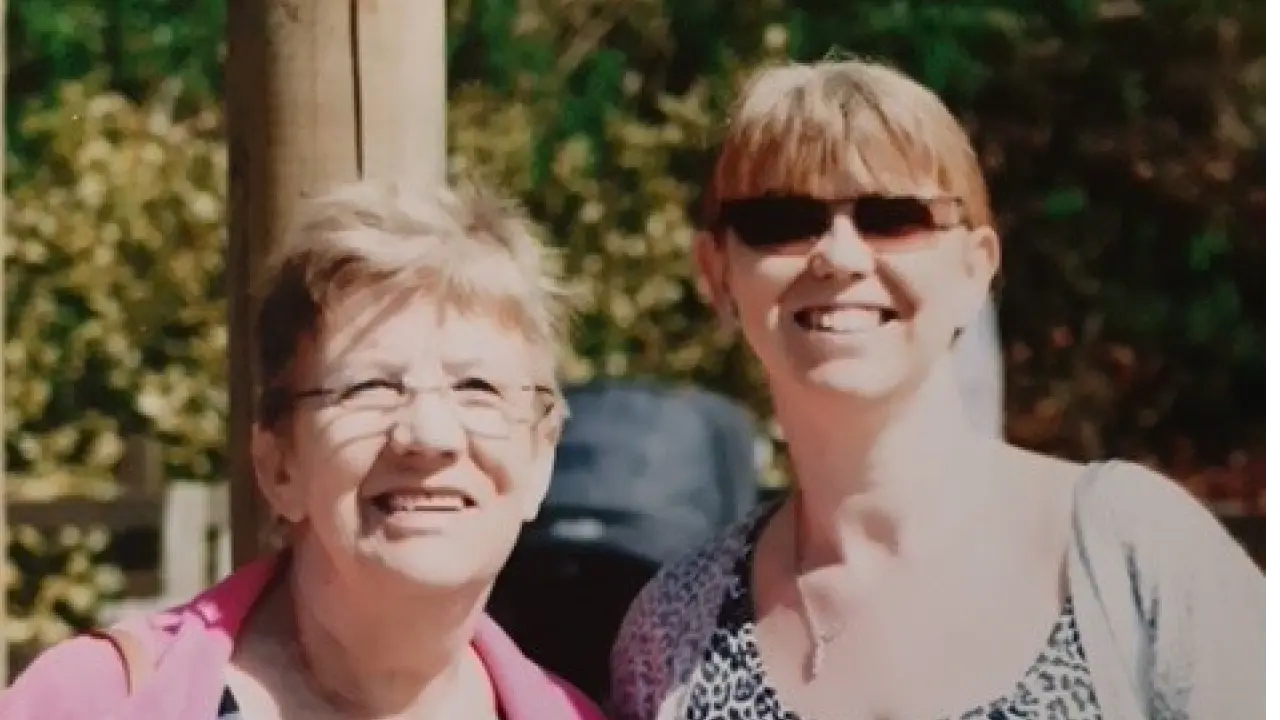Loneliness amongst unpaid carers - Anne's story

Looking after a family member or friend can be rewarding, but it can also feel incredibly isolating and lonely at times. Research shows that carers are seven times more likely than the general population to say they are always or often lonely as they often lose touch with friends or family and sideline their careers due to the demands of caring.
Anne Irvine, 60, grew up an only child in Glasgow and has been a carer for her mum since she was 8 years old, but laterally as a dementia carer for her mum over the last 10 years. After her mum died in 2017, she went straight into caring for her mother-in-law until she passed away in 2024.
“I gave up my career in financial services to be a full-time carer for my mum and moved into her house. My only assistance was from my husband when he wasn't at work as mum refused all help within the home from carers. We then became carers all over again for my mother-in-law in 2017.
“It’s been a very lonely journey no matter who is around you physically and my husband and I feel very broken emotionally and physically.”
We speak to Anne Irvine about her experiences of loneliness and her advice for other carers.
In your experience, what made being a carer such a lonely experience?
Being a dementia carer was very isolating; post diagnosis was especially lonely as you are both given the diagnosis then sent away with a leaflet to carry on as though nothing has happened. Family, friends and colleagues are supportive at the beginning, but as the condition progresses, you often find that you are left to get on and cope alone. You also have less time to talk or meet with friends as caring is demanding around the clock. Other family members are busy with their lives and I didn’t chat with colleagues anymore as I resigned from my career to be a full-time carer. It's a gradual thing but you progressively become more and more lonely.
How did loneliness make you feel physically and emotionally?
I felt as though I was the only person this was happening to. Nothing prepares you mentally or physically for it. Mentally, I'm still receiving counselling to get over the experience, physically I'm broken. You relive a lot of the journey post caring especially when you are alone, you haunt yourself with ‘what ifs’ and ‘if only’ and questions like did I fight hard enough advocating for mum?
Physically, you stop looking after your own health, your loved one becomes your focus. It's left me very anxious, and I still live with 'flight or fight' emotions, you live every day with that ‘what could happen at any moment’ emotion with your loved one, a sudden delirium, they could fall, they could escape, burn themselves, the list is endless. You become a mum to a fully grown, and strong adult. We don't deserve to feel as alone. Carers need more support from diagnosis throughout this beautiful, but also very sad, and stressful caring journey with our loved ones.
What made you feel less lonely?
Peer to peer support, carers centre, and online zooms during lockdown were a lifesaver. I met wonderful carers, and we bonded by sharing and caring together. A few very good friends were amazing too, along with my husband. Without his help, I could not have carried on caring for all those years that we did.
Communication is so important for carers. Whether that is information and advice via charities, like Age Scotland, Carers Centres, Dementia Support Groups etc, don't feel isolated. There are good listeners out there - finding them isn't that easy, you have to do the legwork, but it's so worth it.
Do you have any advice or tips for carers feeling isolated?
Reach out, be assertive and be brave. Everyone caring feels the same.
Join as many organisations as possible for advice, and ones that can link you up with friendship circles or other carers, even if only via zoom, or telephone.
Please look after yourselves and know that what you are doing for your loved one is amazing. We can't buy back that time with them, please make as many memories as possible along the dementia journey.
Don't be afraid to have a voice, you deserve to be heard, you have knowledge of your loved one that nobody else will have.

Help us support more people like Anne
Together, we can make a difference and bring friendship and hope to those who need it most.